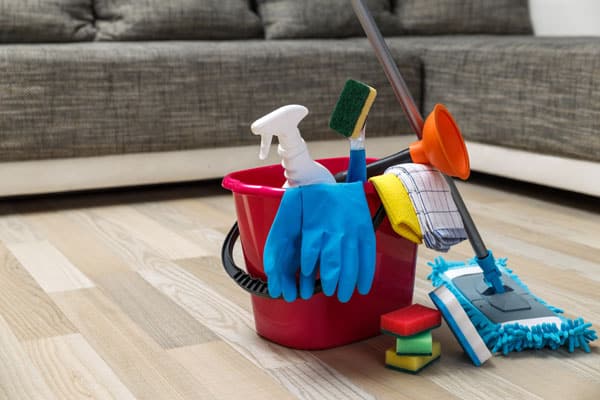Home cleaning is an essential part of maintaining a healthy and comfortable living environment. However, the methods and practices of home cleaning can vary greatly across different cultures and traditions. These cultural practices often reflect the values, beliefs, and historical backgrounds of a specific community.
Cultural Significance of Home Cleaning
In many cultures, home cleaning is not just a mundane chore but holds significant cultural and religious importance. It is seen as a way to purify the living space and create a harmonious atmosphere. For example, in Hinduism, households often perform a ritual called “Aarti” where a lamp is lit and moved in a circular motion to ward off negative energies and bring positivity into the home.
Similarly, in Japanese culture, the practice of “Osoji” takes place at the end of the year, where families thoroughly clean their homes to welcome the New Year. This tradition is believed to symbolize the removal of impurities and making space for new beginnings.
Traditional Cleaning Methods

Each culture has its own unique set of cleaning methods and tools that have been passed down through generations. These traditional methods often utilize natural ingredients that are easily available in the local environment.
- In many African cultures, the use of natural materials such as cow dung, ashes, and clay is common for cleaning floors and walls. These materials not only effectively clean but also provide additional benefits such as insect repellent and insulation.
- In Indian culture, the practice of using a “Jhadu” (broom) made from dried twigs or coconut leaves is prevalent. This traditional broom is known for its ability to sweep away negative energies and is often used during religious ceremonies.
- In the Middle East, a traditional cleaning method called “Miswak” involves using a small twig from the Salvadora persica tree as a toothbrush. This natural toothbrush is not only effective in cleaning teeth but also has antibacterial properties.
Rituals and Superstitions
Home cleaning rituals and superstitions are also prevalent in many cultures. These practices are believed to bring luck, prosperity, and protection to the household.
In Chinese culture, sweeping the floor during the Chinese New Year is considered bad luck, as it is believed to sweep away the good fortune. However, on the other hand, sweeping towards the main entrance is seen as a way to invite prosperity into the home.
In Mexican culture, the practice of “Limpia” involves using various objects such as eggs, herbs, and incense to cleanse the home of negative energies. This ritual is often performed by a spiritual healer and is believed to restore balance and harmony.
Adapting to Modern Practices

While cultural practices and traditions in home cleaning are deeply rooted, they are not static. With the influence of modernization and globalization, many individuals and communities have started adopting more modern cleaning methods and tools.
However, it’s important to recognize and appreciate the cultural significance of traditional cleaning practices. These practices not only provide effective cleaning solutions but also serve as a way to connect with one’s heritage and maintain a sense of identity.
Cultural practices and traditions in home cleaning play a significant role in shaping the way we clean and maintain our living spaces. These practices reflect the values and beliefs of different cultures and provide a unique perspective on the importance of cleanliness. By understanding and respecting these cultural practices, we can embrace diversity and create a more inclusive approach to home cleaning.
Related posts
Recent Posts
Why “Standard Size” Windows Don’t Exist? Window Replacement Experts in Athens, AL Get the Perfect Fit
When it comes to home renovations, windows play a pivotal role in both aesthetics and functionality. Many homeowners in Athens, AL, might assume that window sizes are standardized, but this is a common misconception. In reality, the concept of “standard” window sizes is more myth…
Why do regular AC tune-ups extend the life of your cooling system?
Air conditioning systems are substantial investments, typically costing thousands of dollars to replace. Without regular maintenance, these systems deteriorate faster than necessary. Depending on the manufacturer, neglected HVAC systems can lose up to 5% of their efficiency yearly without proper maintenance. This decline happens gradually,…



